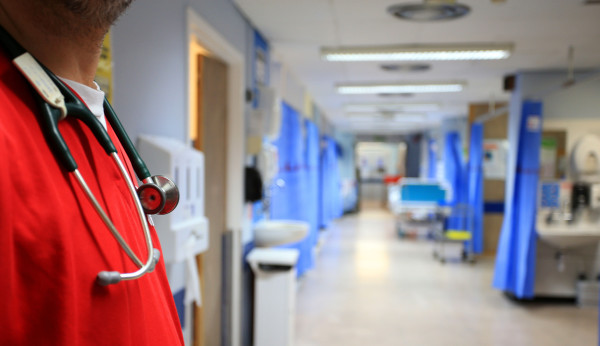

Doctors have called on HM Treasury to rethink the taxation rules around pensions, arguing the rules are encouraging general practitioners (GPs) and consultants to cut their hours, retire early or leave their pension scheme entirely.
The British Medical Association (BMA) has written to chancellor Philip Hammond warning that the current rules on tax relief are penalising senior consultants financially when they take on extra work, and can discourage them from putting forward innovations on treatments and working practices.
Army doctors are also being forced to reconsider their careers as the rules hit their pensions when they rise through the ranks, the union said.
"We would very much like to engage with the government to look at ways to address this problem," BMA council chair Chaand Nagpaul said in the letter.
He added: "GPs are being actively encouraged by accountants to reduce their commitment or, for those nearing retirement, to stop work altogether.
"This will naturally impact on the government’s stated aim to attract 5,000 new GPs in England by 2020."
Currently tax relief is given on savings as they enter the pension pot and at the saver's marginal tax rate, while savings are taxed as people withdraw them for their retirement.
Last month, the Treasury Select committee said this should be fundamentally reformed and the government should consider replacing the lifetime allowance with a lower annual allowance, introducing a flat rate of relief, and promoting understanding of tax relief as a bonus or additional contribution.
According to analysis from financial advice firm LEBC, higher rate taxpayers would lose out on £44,000 in pension tax relief if a flat rate of 30 per cent was introduced.
One of the main rules BMA would like to be changed is the annual allowance - a limit on the amount that can be contributed to pensions each year, while still receiving tax relief – currently set at £40,000.
Concerns about this rule have been echoed by other unions, representing police, firefighters, dentists, nurses, and civil servants, among others, the BMA said.
Dr Nagpaul added: "The unions representing these groups have advised on the significant recruitment and retention problems arising from staff being unwilling to attract a pay increase from a promotion or to undertake additional work, for fear of our potential to attract an annual allowance charge."
The BMA is therefore calling for greater flexibility for a range of complex pension rules, which make it difficult for members to work out and control their pensions.
Dr Nagpaul said: "For many, they feel that the only solution is to opt out of scheme membership.
"Not only may this not be in their best interests but is certainly not in the interests of the NHS pension schemes."
Chase de Vere Medical, which is part of independent financial advice firm Chase de Vere, has also warned of this problem.
Earlier this week (13 August), the firm said it had noted a "significant increase" in the number of doctors either stopping contributions into the NHS pension scheme or retiring early.
Doctors were leaving the scheme mainly due to tax charge concerns if they made excess contributions or if their pension assets became too large, the firm added.
According to Alan Chan, director and chartered financial planner at London-based IFS Wealth & Pensions, the reductions in the lifetime allowance in recent years - from £1.8m in 2011/12 to the current £1.03m – have made the annual allowance "a bit out of place now".
He said: "It penalises those who are perhaps in the later stages of their working careers, when they can afford to save the most as they are in more senior roles, their mortgages have been paid off, or children have flown the nests.
"In addition to this, for higher earners, their annual allowance is tapered so they can only save as little as £10,000 a year."
Mr Chan noted savers should, however, be careful of what they wish for.
He said: "There is no free lunch in life. If the annual allowance is ever increased or abolished completely, then we might see a drastic change to the tax relief system, such as flat rate relief that has long been tooted. There will be winners and losers if this did happen."
maria.espadinha@ft.com



